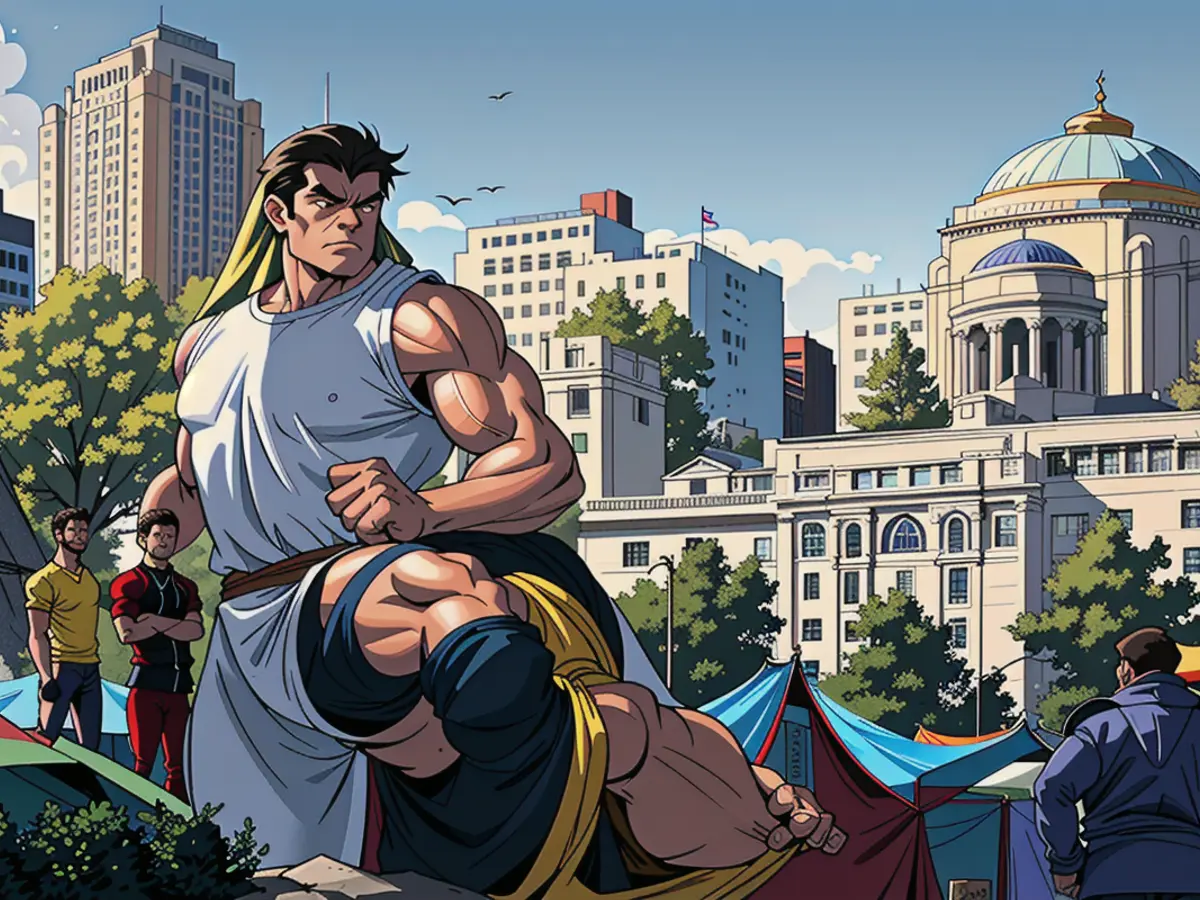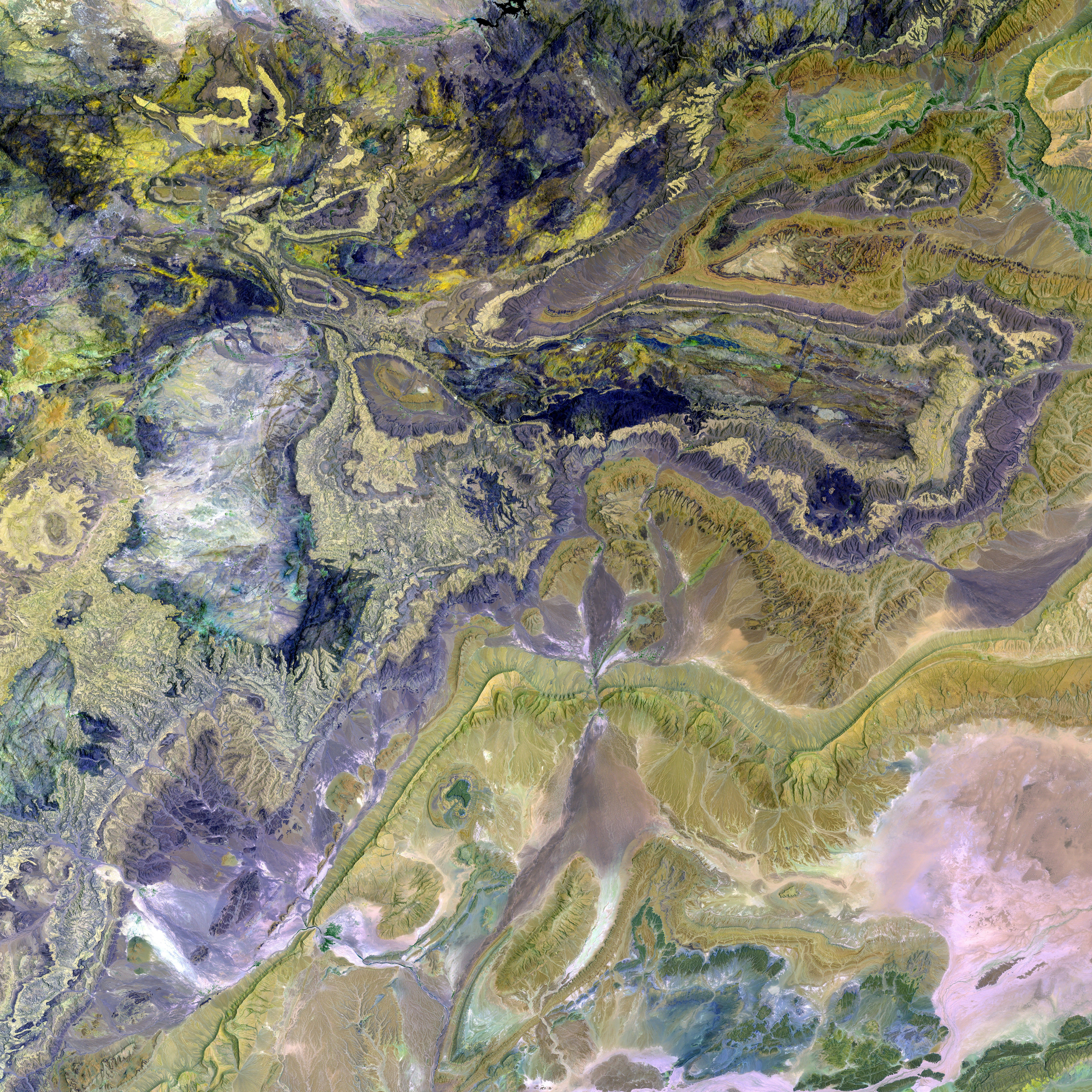"Uncertainty prevails amid Trump's aggressive response towards student protests, sparking widespread concern within U.S. educational institutions"
In the aftermath of a controversial arrest of a pro-Palestinian activist on a university campus, questions swirl about free speech and safety for students across America. The detained individual, Mahmoud Khalil, a Palestinian refugee, had his green card revoked due to his involvement in demonstrations at Columbia University. This incident has sent shockwaves through college campuses nationwide, causing many students to think twice before exercising their constitutional right to free speech.
Elora Mukherjee, a Law School professor and the director of the Immigrants' Rights Clinic at Columbia, has been inundated with queries from students seeking advice on various matters. Concerned students are querying whether they should travel abroad, post on social media, or participate in demonstrations. Mukherjee explains that activities that were once taken for granted are now perceived as risky, leaving students grappling with difficult decisions about their actions and expressions.
Khalil's arrest and subsequent detention have left many students, particularly international students, feeling terrified about their own futures. International students, as well as those with undocumented or tenuous immigration status, fear the attention of the Trump administration and are being advised to maintain a low profile. They are aware of the dangerous times they are living in and are encouraged to make decisions that are best for their lives, which may include staying off social media or careful consideration of their participation in protests.
The Trump administration's actions have set a chilling precedent for students across the nation. Zaid, a student at the University of California, Berkeley, expresses fear about the potential targeting of international students and the First Amendment in general. If Khalil is deported, as promised by President Trump, it could open the door for fresh waves of targeting and intimidation.

Ironically, Khalil maintains a green card and is married to an American citizen who is eight months pregnant. Despite not being charged with any crime, Khalil has been temporarily blocked from deportation by a federal judge and remains in ICE custody in Louisiana.
The government's case against Khalil has been questioned by Donna Lieberman, executive director of the New York Civil Liberties Union, who calls his detention an attempt to bully universities into submission and intimidate students and faculty from speaking out. The arrest of another individual involved in Pro-Palestinian demonstrations at Columbia, Leqaa Kordia, and the self-deportation of a separate Columbia student by the Department of Homeland Security, have further raised concerns about the administration's escalating crackdown on campus activism.
The tension between the Trump administration and Columbia University is an issue of contention for college students and educators across the nation. The administration's demands, such as the cancellation of government grants and contracts, are being closely watched, with concerns about the potential ripple effects on future generations. Jameel Jaffer, director of the Knight First Amendment Institute at Columbia, describes the administration's demands as essentially saying, "We'll destroy Columbia unless you destroy it first."

At Harvard University, nearly 200 faculty members, staff, and students recently rallied in support of Khalil and called out the Trump administration's actions against colleges. Violet Brown, a junior at Harvard who is involved with pro-Palestinian groups, said the attack on free speech witnessed at Columbia serves as a warning to other universities about the dangers of acquiescence and obedience to a potentially fascist administration.
The tensions between the Trump administration and universities, exemplified by the case of Mahmoud Khalil, underscore the urgent need to safeguard freedom of speech and academic integrity on campuses across America. The next few years could have profound consequences for generations to come, making it essential for students and educators to remain vigilant and engaged in the fight for their rights.
- International students, like Zaid at the University of California, Berkeley, are feeling terrified about their futures and are advised to maintain a low profile due to the actions of the Trump administration, which may target them and potentially deport activists such as Mahmoud Khalil.
- Concerned students might reconsider activities that were once taken for granted, such as traveling abroad, posting on social media, or participating in demonstrations, as the detention of Mahmoud Khalil and others has sent shockwaves through college campuses nationwide, leaving students grappling with difficult decisions about their actions and expressions.
- Academics and educators, such as Jameel Jaffer at Columbia University, are closely watching the administration's demands, including threats to cancel government grants and contracts, as these actions could have profound consequences for future generations, undermining the freedom of speech and academic integrity on campuses across America.






